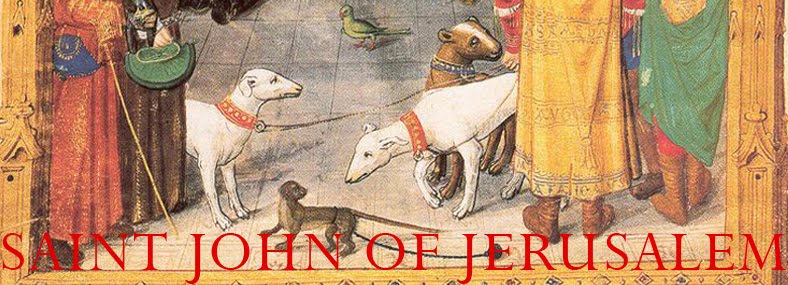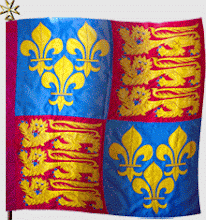WHY DIDS'T THOU NOT LOOK UPON ME, IOKANAAN?
As we may not, this year, come together beneath the domes of the Brompton Oratory for the feast of our Blessed Patron (though there is an evening Mass, see below), we may yet, virtually, do that other thing which people do when they come together in large numbers, namely to watch a play.
In this case the Martyrdom of the Holy Baptist, as recounted by Oscar Wilde in his play “Salomé”. Richard Strauss based his eponymous opera upon the same play, so 15 years before.
This powerful and aesthetic silent film from 1923 has all the art-deco hallmarks of Eastern European art cinema of the period. It was neverthess, and surprisingly, made in Holywood, directed by Charles Bryant, with a mise-en-scène by Peter M Winters. The artistic design and costumes are by Natacha Rambova (actually a rich American-Irish woman called Winifred Shaughnessy briefly married to Rudolph Valentino), based upon Aubrey Bearsley’s sensual illustrations for the play. The dancer playing Salomé (who was 40 years old at the time but looks 20) is Alla Nazimova, who had paid for the film herself, to her great financial detriment. It was a complete flop at the time, despite the review – “a hothouse orchid of decadent passion.” Yet surely Salomé herself could not have been more seductively evil?
Herod, played by Mitchell Lewis, is also magnificent, the personification of the spiritual effects of a life of sensuous desire, dissipation and neglect of the soul. This is what unbridled worldly pleasure and pride truly looks like to the sane observer. This is how Dorian Gray might have played it – the corruption of all that is good and lovely into something both monstrous, yet at the same time feeble and pathetic. We see here the corruption of the human body, male and female, of kingship, of marriage, of friendship, of love. All that is noble and lovely, all God’s greatest gifts, inverted. Horrible.
And against this monstrous reflection of reality we see Saint John, as chaste is his words as in his body, proclaiming only the Truth. Lean, spare, pure. Only through the lens of Evil, as we see laid bare before us this night, can God’s beauty become a source of unnatural desire.
How many lessons has this film for us today in our licentious world?! For each of us, as we strive against the Zeitgeist? Circumspice! To watch this film in a spirit of prayer, and to convert its undeniable external loveliness in our minds into God’s true Beauty, is a truly spiritual exercise, and a good way to spend the Feast. By rejecting ugliness within, we may love beauty all the more. Like the world around us, this film may be taken either way, but it is not the filmmaker’s, nor Oscar Wilde’s fault, nor Saint John’s, if we choose to see it through the world’s smeared lens.
The only downside of it being a Holywood production is that the text of the intertitle cards is in English, whereas Wilde very specifically, and for good reason, wrote his play in French, the language of passionate and dissipated love in his own post-enlightement age. A shame. “Ah! J’ai baisé ta bouche, Iokanaan, j'ai baisé ta bouche.”
The musical score to this version is by Mike Frank, 2015.
There is another excellent instrumental and vocal score written by Charlie Barber (2009) using arabic musical forms, and performed and produced by soundaffairs.co.uk, HERE, but is only available in a dozen separate short videos. The dance of the Seven Veils is HERE.
Please note, there is a Sung Mass of the Feast at 7pm at St James's Spanish Place, Thursday 24th June. All members who can should attend.
Beate Ioanne Baptista, ora pro nobis!
Category (click to see all related):
Catholic life,
Faith,
Reports












